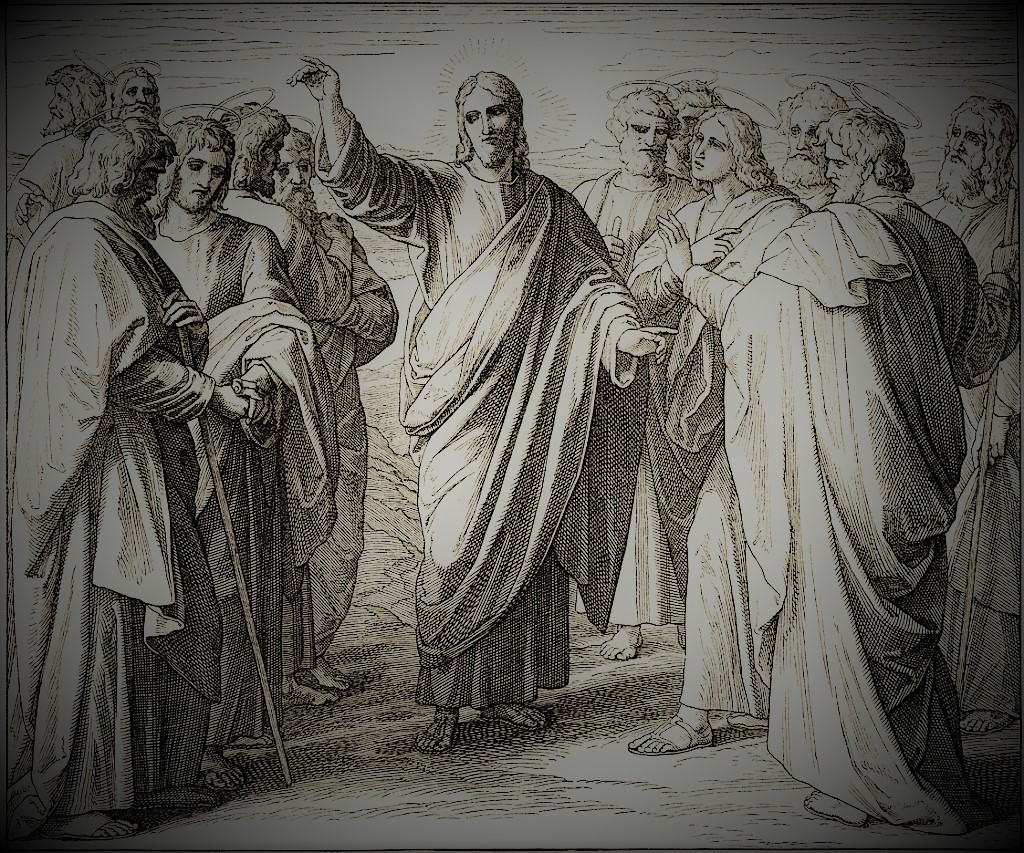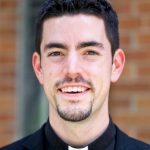If you love me, you will keep my commandments.
And I will ask the Father,
and he will give you another Advocate to be with you always,
the Spirit of truth, whom the world cannot accept,
because it neither sees nor knows him.
But you know him, because he remains with you,
and will be in you. (Jn. 14:15-20)
Of all the doctrines of the Faith, the Holy Spirit is probably one of the toughest for us to understand. The Third Person of the Trinity can seem vague, amorphous, unclear. Some of us have the image of a dove (which is Scriptural), but that isn’t wholly accurate. We do not have a “face” to go with the name, in a manner of speaking. Of course, it is a mystery – meaning it is something we will not fully understand this side of Heaven, if ever.
However, that does not mean we don’t know anything about the Holy Spirit. Here are some facts:
- According to Scott Hahn, we get much of what we can know about the Spirit from the Book of Wisdom:
It was common for Jews of the time to view divine Wisdom as a person (or personification) distinct from Yahweh, and Christians often interpreted the Bible’s wisdom passages as referring to the Holy Spirit. It was a reasonable surmise. For example, in the Book of Wisdom, chapters 7–9, God’s Wisdom is referred to as “holy spirit,” and then described in terms that are strikingly divine (“all-powerful,” “all-knowing,” “overseeing all,” and “more mobile than any motion,” 7:22–23). And, since the Hebrew word for Wisdom, hokmah, is also feminine, Wisdom was addressed in bridal terms (“irresistible,” “more beautiful than the sun,” 7:22, 29).
- We need the Holy Spirit in order to comprehend God’s thoughts (1 Cor. 2:11), and the Spirit has spoken through the prophets in order to help us gain this understanding.
- St. Catherine of Siena gives us this beautiful analogy: “Enrich your soul in the great goodness of God: The Father is your table, the Son is your food, and the Holy Spirit waits on you and then makes His dwelling in you.”
- We know we are “sealed” in the Spirit at Confirmation. That “mark,” says St. Paul, is made because we believe in Christ Jesus.
- The Holy Spirit is a gift-giver! He shares with us wisdom, understanding, knowledge, counsel, fortitude, piety and fear of the Lord. Of course, like any gift, we can choose to use these or we can stuff them back in the proverbial box, shove them in a dark corner of our closet and forget about them. The Spirit gives the gifts, but He will never strong-arm us into using them.
- And the gifts just keep on giving! The Holy Spirit (just as St. Catherine of Siena said) brings to us luscious fruit as our “waiter:” charity, joy, peace, patience, kindness, goodness, long-suffering, humility or gentleness, fidelity or faithfulness, modesty, continence or self-control and chastity. Again, we can give thanks and eat, or we can tell the waiter to take it back.
While we may not fully understand the Holy Spirit, it is clear from just these few thoughts that the Spirit is an abundant giver, powerful, and willing to serve us. The Holy Spirit is the love of God the Father and God the Son, poured out into this Third Person of the Trinity, speaking to us through Scripture and the Church. Yes, the Holy Spirit is a mystery – but a mystery willing to reveal itself bit-by-bit as we pray and study and contemplate.
Spirit of life, by whose power the Word was made flesh
in the womb of the Virgin Mary, the woman of attentive silence,
make us docile to the promptings of your love
and ever ready to accept the signs of the times
which you place along the paths of history.
Come, Spirit of love and peace!
To you, Spirit of love,
with the Almighty Father and the Only-Begotten Son,
be praise, honour and glory
for ever and ever. Amen.
[Original art by Waiting for the Word.]
 Elise Hilton is an author, blogger and speaker. Her role at Diocesan Publications is Editor & Writer with the Marketing Team. She has worked in parish faith formation and Catholic education for over 30 years. A passionate student of theology, Elise enjoys sharing her thoughts on parish communication, the role of social media in the Church, Franciscan spirituality and Catholic parenting. To enquire about booking her as a speaker, please contact her at ehilton@diocesan.com.
Elise Hilton is an author, blogger and speaker. Her role at Diocesan Publications is Editor & Writer with the Marketing Team. She has worked in parish faith formation and Catholic education for over 30 years. A passionate student of theology, Elise enjoys sharing her thoughts on parish communication, the role of social media in the Church, Franciscan spirituality and Catholic parenting. To enquire about booking her as a speaker, please contact her at ehilton@diocesan.com.


 Fr. Scott Nolan is a priest of the
Fr. Scott Nolan is a priest of the 